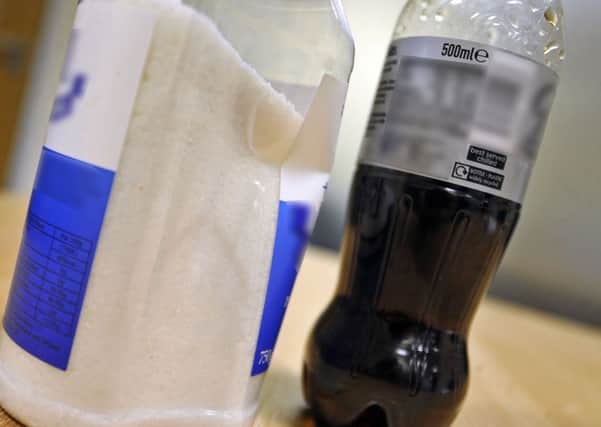Tax on sugary drinks could cut obesity rates by 5%, report finds


Cancer Research UK and the UK Health Forum has calculated that the tax could reduce obesity rates in the UK by five per cent by 2025.
That would equate to 3.7m fewer obese people, equivalent to the combined populations of Leeds, Birmingham, Sheffield, Manchester, Bristol and Leicester.
Advertisement
Hide AdAdvertisement
Hide AdCurrently six in 10 adults in Yorkshire and the Humber are overweight or obese.
Among children in the region, more than 20 per cent are too heavy when they start primary school, rising to one in three by the age of 11.
The report predicts that the tax could save the NHS nationally about £10m in healthcare and social care costs in 2025 alone.
Several charities and high-profile campaigners, including celebrity chef Jamie Oliver, are calling for a sugar tax as part of a range of measures to cut obesity and the amount of sugar in children’s diets.
Advertisement
Hide AdAdvertisement
Hide AdAdults and young children consume twice the maximum recommended amount of added sugar, and 11 to 18-year-olds eat and drink three times the recommended limit, with sugary drinks their main source.
Lisa Millett, Cancer Research UK’s spokeswoman for Yorkshire and the Humber, said: “The ripple effect of a small tax on sugary drinks is enormous. These numbers make it clear why we need to act now before obesity becomes an even greater problem.
“We’re all bombarded by junk food advertising of cheap foods packed with extra calories and it can be tough for parents do what’s best for their children. The Government has a chance to help reduce the amount of sugar consumed by adults and children and to give future generations the best chance of a healthier life.”
A survey found that 55 per cent of people in Yorkshire supported the sugar tax and 73 per cent backed a ban on junk food advertising before the 9pm watershed – which is also proposed by Cancer Research UK.
Advertisement
Hide AdAdvertisement
Hide AdJane Landon, UK Health Forum’s deputy chief executive, said: “These figures indicate that even a modest tax at 20 per cent – as part of a society-wide response – could help to deliver the scale and pace of change needed to turn around the UK’s crisis of obesity-related ill-health.”
Barbara Dinsdale, lifestyle manager at Leeds-based charity Heart Research UK, said: “Whatever it takes to help wean consumers off highly sweetened and energy-dense products, contributing to the overconsumption of calories, can only have a positive effect on individuals and the health of the nation.”
However Gavin Partington, director general of the British Soft Drinks Association, said the claims were “contrary to real-world evidence” and there was no evidence that a similar tax in Mexico had reduced levels of obesity.
“The most comprehensive study into tackling obesity, from the McKinsey Global Institute 2014 report and Public Health England, found that a tax would be much less effective than reducing portion sizes and reformulating products,” he added.
“These are steps that our industry is already taking and as a result has reduced calories by 7.5 per cent since 2012 with plans to reduce a further 20 per cent by 2020.”